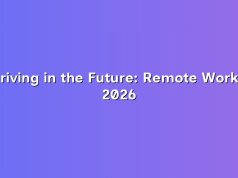The pursuit of workplace equality has long been a critical issue in corporate and entrepreneurial spaces. While significant strides have been made in recent years, breaking industry glass ceilings for women and minority groups remains a work in progress. Recent events, such as a legal challenge against PayPal’s diversity initiative and the inspiring rise of women entrepreneurs in Salt Lake City, reveal both the progress and barriers faced in this movement.
The Case of PayPal’s Minority Startup Program
In a pivotal development, a venture capitalist has sued PayPal over its program designed to provide funding specifically for minority startups. The initiative was crafted to address historical disparities in access to capital among underrepresented entrepreneurs. The lawsuit, however, challenges the program’s legality, questioning whether such initiatives create exclusionary practices or unfair advantages.
This case underscores the complex legal and ethical dynamics of diversity-driven policies in the business world. Critics argue that while the intent is noble, targeting funding based on race or gender could raise concerns of discrimination against non-minority entrepreneurs. Supporters, however, emphasize that systemic barriers have long denied minority founders equal access to capital, making such targeted programs essential for leveling the playing field.
Historically, minority-led businesses have faced systemic hurdles in securing investment. According to data from Crunchbase, Black and Latinx founders received just 2.4% of total venture capital funding in the U.S. in 2022, despite representing a significant portion of the entrepreneurial ecosystem. Programs like PayPal’s aim to correct this imbalance, but legal challenges could discourage corporations from taking bold steps toward equity.
Women Entrepreneurs Shattering Barriers in Salt Lake City
On the other end of the spectrum, women entrepreneurs in Salt Lake City are making headlines for their groundbreaking work. According to a recent CNBC report, the city has seen a surge in women-led businesses, with female entrepreneurs reshaping the business landscape. From tech startups to sustainable fashion brands, these leaders are defying stereotypes and challenging traditional industry norms.
What makes Salt Lake City’s story particularly inspiring is how women are not only succeeding but creating supportive ecosystems for one another. Female-driven networks have emerged, offering mentorship, funding guidance, and collaborative growth strategies. The impact goes beyond individual success — it redefines the narrative of leadership in the region.
The growth of women-owned businesses in Salt Lake City aligns with broader trends across developed nations. In 2021, the U.S. Census Bureau reported a nearly 20% increase in women-owned businesses compared to the previous decade. This momentum is driven by both policy shifts and grassroots initiatives aimed at empowering women in leadership roles.
Why Diversity Initiatives Matter
Diversity in leadership and entrepreneurship is not just a moral imperative — it’s an economic advantage. Research consistently shows that diverse teams perform better, drive greater innovation, and are more resilient to market fluctuations. A 2023 report from McKinsey & Company found that companies with diverse executive teams were 33% more likely to outperform their less diverse counterparts in profitability.
However, progress remains uneven. Women and minorities still face significant barriers, including:
- Access to Capital: Women and minority-owned businesses often receive less funding compared to male-led ventures.
- Bias in Hiring and Promotion: Unconscious bias continues to hinder the career growth of underrepresented groups.
- Lack of Mentorship and Representation: Fewer role models in leadership positions can discourage emerging entrepreneurs.
Programs like PayPal’s and the successes seen in Salt Lake City represent important steps in challenging these norms. Yet, the legal challenges faced by PayPal demonstrate the fragility of such progress and the necessity of defending inclusive policies.
The Legal Debate: Striking a Balance
The lawsuit against PayPal raises essential questions: How can companies balance diversity goals with legal fairness? Can affirmative action in funding be justified without excluding other groups? These debates echo broader national conversations about affirmative action in education and the workplace.
Legal experts suggest that the key lies in designing programs that promote inclusion without direct exclusion. For example, diversity initiatives can be crafted to focus on providing additional resources and mentorship rather than setting hard demographic quotas. Transparency and clear objectives can also help mitigate misunderstandings.
However, corporate responsibility also plays a role. Companies must be proactive in explaining why diversity matters — not just as a policy, but as a strategy for long-term success. When inclusion is framed as a driver of innovation and market competitiveness, it becomes easier to justify targeted efforts.
The Path Forward: How to Sustain Change
Breaking industry glass ceilings requires a multi-faceted approach, including:
- Policy and Legislative Support: Governments can play a pivotal role in promoting workplace equity through policy reforms and incentives for diverse hiring and funding.
- Corporate Accountability: Companies must commit to transparent diversity reporting, regular equity audits, and inclusive hiring practices.
- Grassroots Empowerment: Local success stories, such as those emerging from Salt Lake City, showcase the power of community-driven initiatives in driving change.
- Education and Awareness: Continuous efforts to educate leaders and employees about unconscious bias and diversity benefits are essential.
The Human Impact: Real Stories Matter
Beyond statistics and lawsuits, the stories of women and minority entrepreneurs matter deeply. Take, for example, women in Salt Lake City who are not only achieving personal success but are using their platforms to mentor others. Or consider the founders impacted by PayPal’s program, who may have accessed funding they would have otherwise been denied.
These stories remind us that diversity initiatives are not about numbers alone — they’re about human potential. They empower individuals who have been historically marginalized to lead, innovate, and inspire.
Final Thoughts
The current tension between PayPal’s diversity initiative and the legal challenges it faces reveals a critical moment in the fight for workplace equity. At the same time, the successes in Salt Lake City showcase what can be achieved when barriers are broken and inclusivity is prioritized.
As industries evolve, the focus should not be on whether diversity initiatives are necessary — they are. Instead, the conversation should shift toward how they can be designed to be effective, equitable, and sustainable. It’s not just about fairness — it’s about building a stronger, more innovative global economy where everyone can thrive.
Sources:




























